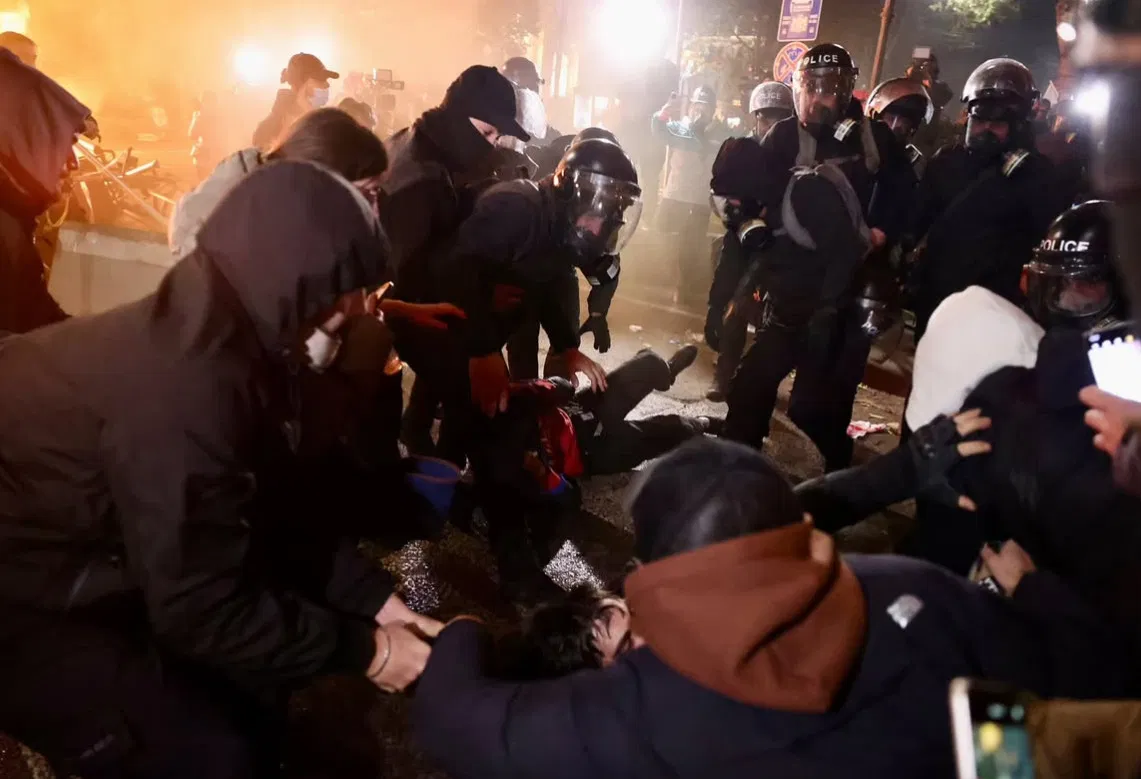**Violence Against Pro-EU Demonstrators in Georgia**
International and local human rights organizations have documented severe violence against pro-EU demonstrators in Georgia. The violence happened between November 28 and December 8, 2024.
**Systematic Repression**
The report by the World Organisation Against Torture (OMCT) shows that the Georgian government had a plan to stop protesters. This included using excessive police force, arresting people without reason, and prosecuting them unfairly. The government also passed laws that make it harder for people to protest peacefully.
**Police Brutality**
The report says that riot police used extreme physical abuse against protesters. They beat people with their fists, feet, and brass knuckles. Some people were even threatened with violence or death. The police also used tactics like “beating corridors” to hurt protesters.
**No Accountability**
Despite having evidence of police brutality, the Georgian government has not held anyone accountable. In some cases, police officers who were caught on video beating protesters have been let off without punishment.
**Victims’ Rights Ignored**
The report says that victims of police abuse are left without help. They do not get medical treatment or compensation for what happened to them. The government also passed a law that makes it harder for people to protest peacefully, and this will make it even more difficult for victims to seek justice.
**Recommendations**
The OMCT report recommends that the Georgian government:
* Allow protesters to gather peacefully
* Limit police force to only when necessary
* Make sure police officers wear identification tags
* Investigate cases of torture fairly
* Provide medical treatment and compensation to victims
International organizations are also asked to monitor court hearings, support civil society groups documenting abuses, and consider sanctions against officials involved in human rights violations.
**Methodology**
The report was written based on interviews with 15 people who were affected by the violence. These people included journalists, lawyers, and local experts. The findings were checked against other sources of information to make sure they are accurate.
Read More @ civil.ge













